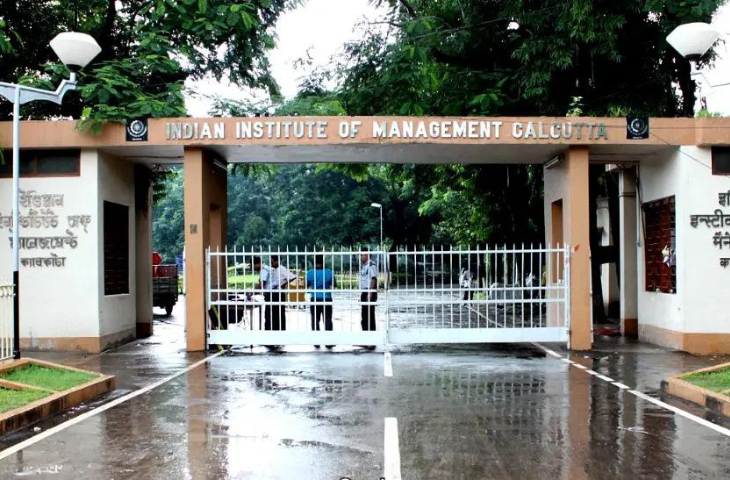CAT Exam VS GATE Exam
CAT Exam VS GATE Exam – CAT and GATE exams are entrance exams for different fields, both test students’ aptitude. CAT is for MBA admissions to top B-schools in India, while GATE is for MTech programs in prestigious institutions like IITs and NITs, as well as job opportunities in government engineering sectors. This article will discuss the key distinctions between CAT and GATE and shed light on their difficulty levels.
CAT Exam VS GATE Exam – Overview
What is CAT Exam?
The CAT Exam is an online test organized by different IIMs in India each year. It’s for people who want to get into prestigious business schools like IIMs, FMS, SPJIMR, IMI, MDI, JBIMS, NIIE, and IMT. If you pass the CAT exam, you can secure admission to these top-notch management and business schools in India.
What is GATE Exam?
The GATE exam is an online test that evaluates the understanding of engineering and science subjects for students. It’s for those who are finishing their engineering degree or have completed it and want to pursue a post-graduate course, possibly with financial support from the government. It’s also for those seeking jobs in government-related companies.
CAT Exam VS GATE Exam – Overview
In the table below, candidates can see a comparison of CAT and GATE exams.
| Parameter | CAT | GATE |
| Exam Conducting Body | IIM’s | IIT’s |
| Mode of Exam | Online | Online |
| Purpose of Examination | Entrance exam for admission to pursue MBA (from IIM’s, FMS, MDI, SP JAIN, etc.) | The entrance exam for post-graduate admission to pursue M.Tech / ME, or PSUs through GATE |
| Sections | Verbal Ability and Reading Comprehension (VARC)Data Interpretation and Logical Reasoning (DILR)Quantitative Ability (QA) | General Aptitude (GA)Branch chosen by the candidate |
| Total Marks | 198 | 100 |
| Exam duration | 3 Hours | 3 Hours |
| Type of questions | Multiple Choice Questions (MCQ’s)TITA Type Questions | Multiple Choice Questions (MCQ’s)Multiple Select Questions (MSQ’s)Numerical Answer Type (NAT) Questions |
| Number of questions | 100 (34 questions in VARC 32 questions in DILR 34 questions in QA) | 65(10 questions in GA55 questions in the core subject) |
CAT Exam VS GATE Exam – Eligibility Criteria
Here’s a detailed comparison of the eligibility criteria for the CAT and GATE exams presented in a table:
| Eligibility Criteria | CAT Exam | GATE Exam |
|---|---|---|
| Educational Qualification | Bachelor’s degree in any discipline from a recognized university or institute. | Bachelor’s degree in engineering, technology, or science OR a Master’s degree in any branch of science/mathematics/statistics/computer applications OR equivalent. |
| Minimum Percentage | General and OBC-NC category candidates: At least 50% marks in aggregate or equivalent CGPA. SC, ST, and PWD category candidates: Minimum 45% marks. | No specific minimum percentage requirement. |
| Graduation Duration | The duration of the bachelor’s degree program should be a minimum of three years. | No specific duration requirement for the bachelor’s degree program. |
| Final Year Students Eligibility | Final year graduation students can apply provided they complete their program within the stipulated schedule. | Yes, final year students can apply. |
| Age Limit | No age limit for applying or appearing in CAT. | No age limit for GATE aspirants. |
| Work Experience | Work experience is not a mandatory requirement. | No work experience required. |
| Number of Attempts | No defined limit on the number of CAT attempts. | No specified limit on the number of GATE attempts. |
| Nationality | CAT is primarily for Indian candidates, but some international candidates can also apply. | GATE is open to Indian and international candidates. |
Please note that these eligibility criteria are subject to change, and candidates should verify the latest requirements from the official websites of CAT and GATE exams before applying.
CAT Exam VS GATE Exam – Exam Pattern and Syllabus
Here’s a detailed comparison of the exam pattern and syllabus for the CAT and GATE exams presented in a table:
| Exam Aspect | CAT Exam | GATE Exam |
|---|---|---|
| Exam Pattern | Computer-based test (CBT) | Computer-based test (CBT) |
| Total Sections | Three sections: Verbal Ability and Reading Comprehension (VARC), Data Interpretation and Logical Reasoning (DILR), and Quantitative Ability (QA) | Multiple papers based on the chosen subject paper (up to 27 papers available) |
| Type of Questions | VARC: Multiple-choice questions (MCQs) and non-MCQs DILR: MCQs and non-MCQs QA: MCQs and non-MCQs | Multiple-choice questions (MCQs) and Numerical Answer Type (NAT) questions |
| Marking Scheme | VARC: +3 for correct answers, -1 for incorrect answers DILR: +3 for correct answers, -1 for incorrect answers QA: +3 for correct answers, -1 for incorrect answers | MCQs: +1 for correct answers, -1/3 for incorrect answers NAT: +1 or +2 for correct answers (partial and full marks), no negative marking for NAT questions |
| Exam Duration | 2 hours (120 minutes) | 3 hours (180 minutes) for a single paper |
| Exam Sections’ Sequence | VARC → DILR → QA | Sequence varies based on the chosen paper |
| Syllabus | – VARC: Reading comprehension, English language usage, grammar – DILR: Logical reasoning, data interpretation – QA: Arithmetic, algebra, geometry, number system, modern math, and more | – Subject-specific syllabus based on the chosen paper, including engineering mathematics and core subjects related to the discipline |
Please note that the CAT syllabus is more uniform across all candidates, while the GATE syllabus varies depending on the chosen subject paper. Candidates should review the specific syllabus details for their intended GATE paper.
CAT Exam VS GATE Exam – Difficulty Level
Here’s a detailed comparison of the difficulty level for the CAT and GATE exams presented in a table:
| Aspect | CAT Exam | GATE Exam |
|---|---|---|
| Difficulty Level | Considered highly challenging due to its competitive nature, time constraints, and the requirement for strong problem-solving skills. | Generally challenging, particularly in the technical subjects, with a focus on in-depth knowledge of the chosen engineering/science field. |
| Competitiveness | Extremely competitive, as it is primarily for admission to elite Indian business schools. High competition for limited seats. | Competitive, with a wide range of technical and engineering subjects, attracting candidates from various backgrounds. |
| Problem-Solving Skills | Requires strong analytical and problem-solving skills, especially in the Quantitative Ability and Data Interpretation and Logical Reasoning sections. | Emphasizes subject-specific knowledge, analytical skills, and the ability to apply concepts in the chosen engineering/science field. |
| Time Management | Requires efficient time management and quick thinking due to the tight time constraints in each section. | Demands effective time management, particularly in solving complex technical problems and numerical questions. |
| Subject-Specific Knowledge | Requires a basic understanding of mathematics and language, making it accessible to a wider range of candidates. | Requires in-depth subject-specific knowledge, which may limit its accessibility to candidates within certain disciplines. |
| Overall Difficulty Perception | Perceived as challenging, particularly for those without a strong background in mathematics and problem-solving. | Perceived as challenging, especially for candidates outside the chosen engineering/science field. Difficulty varies depending on the paper selected. |
Both CAT and GATE have their own unique challenges and difficulty levels, with CAT focusing on business and management skills while GATE emphasizes technical and engineering knowledge. The perception of difficulty may vary depending on individual strengths and backgrounds.
CAT Exam VS GATE Exam – Frequently Asked Question
Q1: Which exam, CAT or GATE, offers better career prospects in India?
Ans: CAT is the preferred choice if your career goal is to pursue a management career in India, as it opens doors to top B-schools and management roles.
Q2: Are there more opportunities and higher salaries with CAT compared to GATE?
Ans: Yes, CAT can lead to lucrative opportunities in the business and management sector, often offering higher earning potential compared to GATE-related roles.
Q3: Can CAT help me develop a strong professional network within the business world?
Ans: Absolutely, CAT’s connections to prestigious B-schools and industry leaders can help you build a robust professional network, which can be advantageous for your career.






